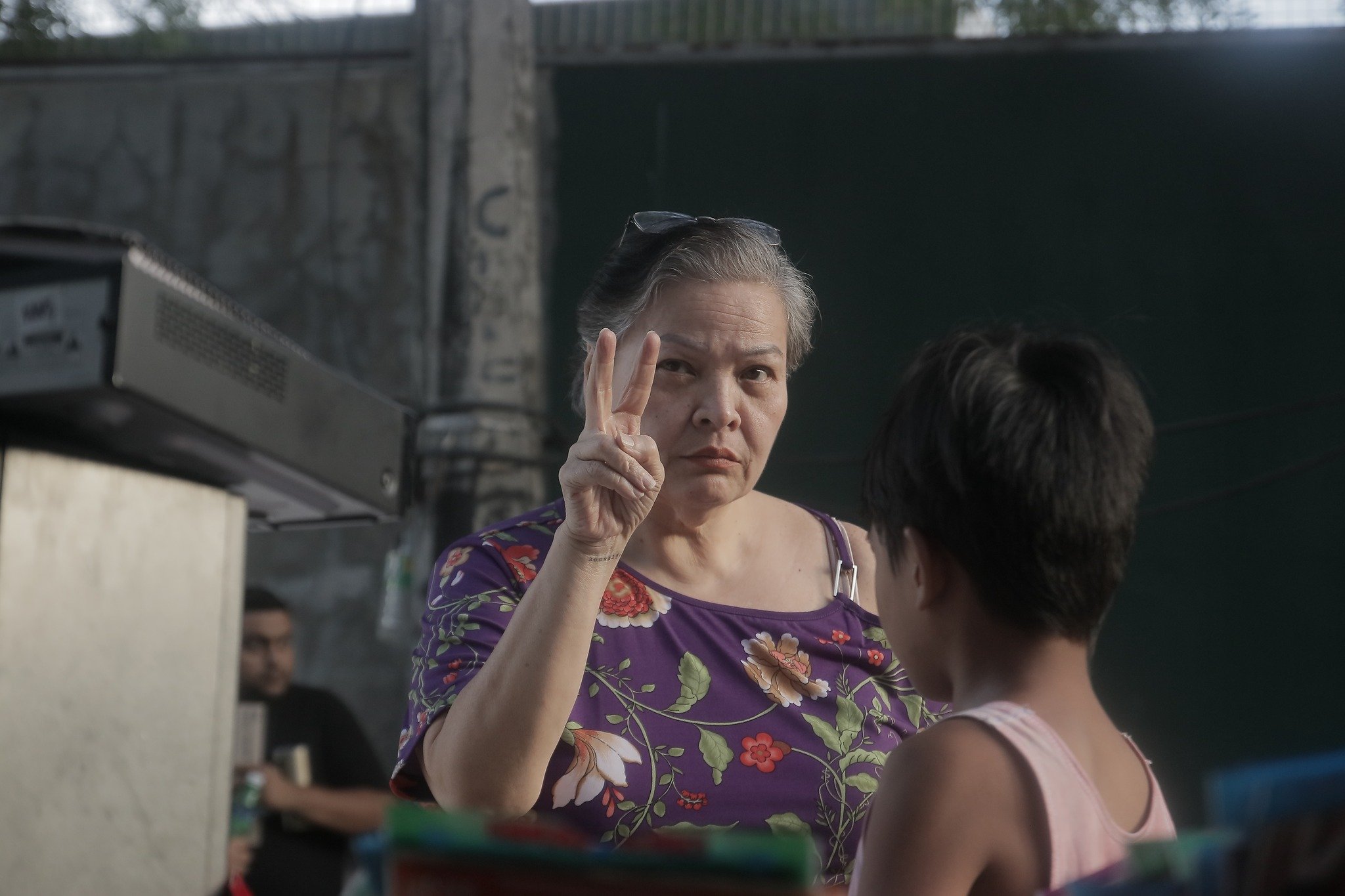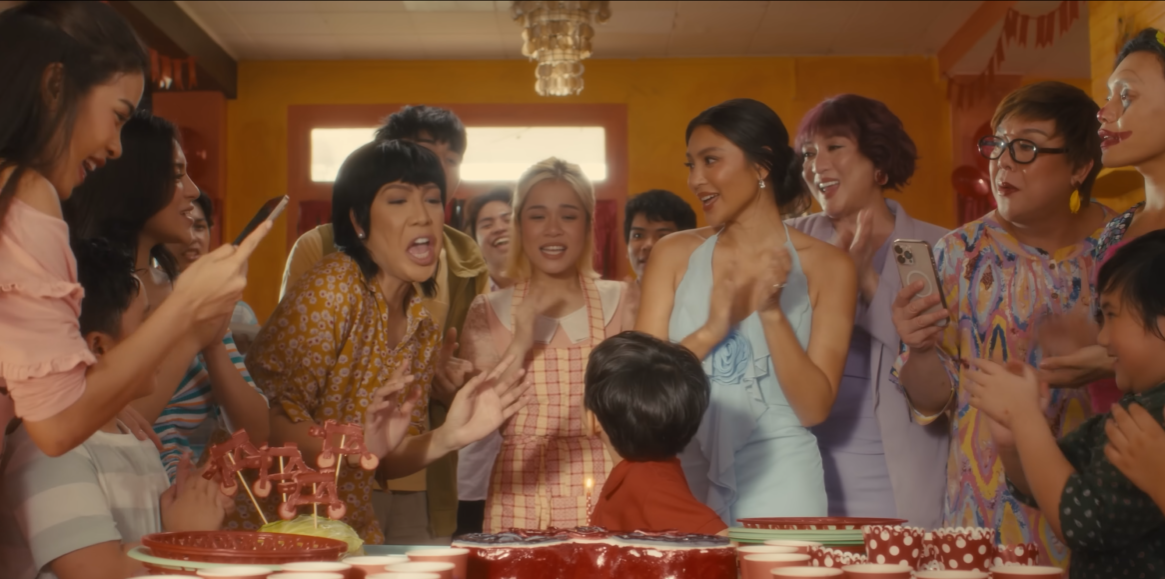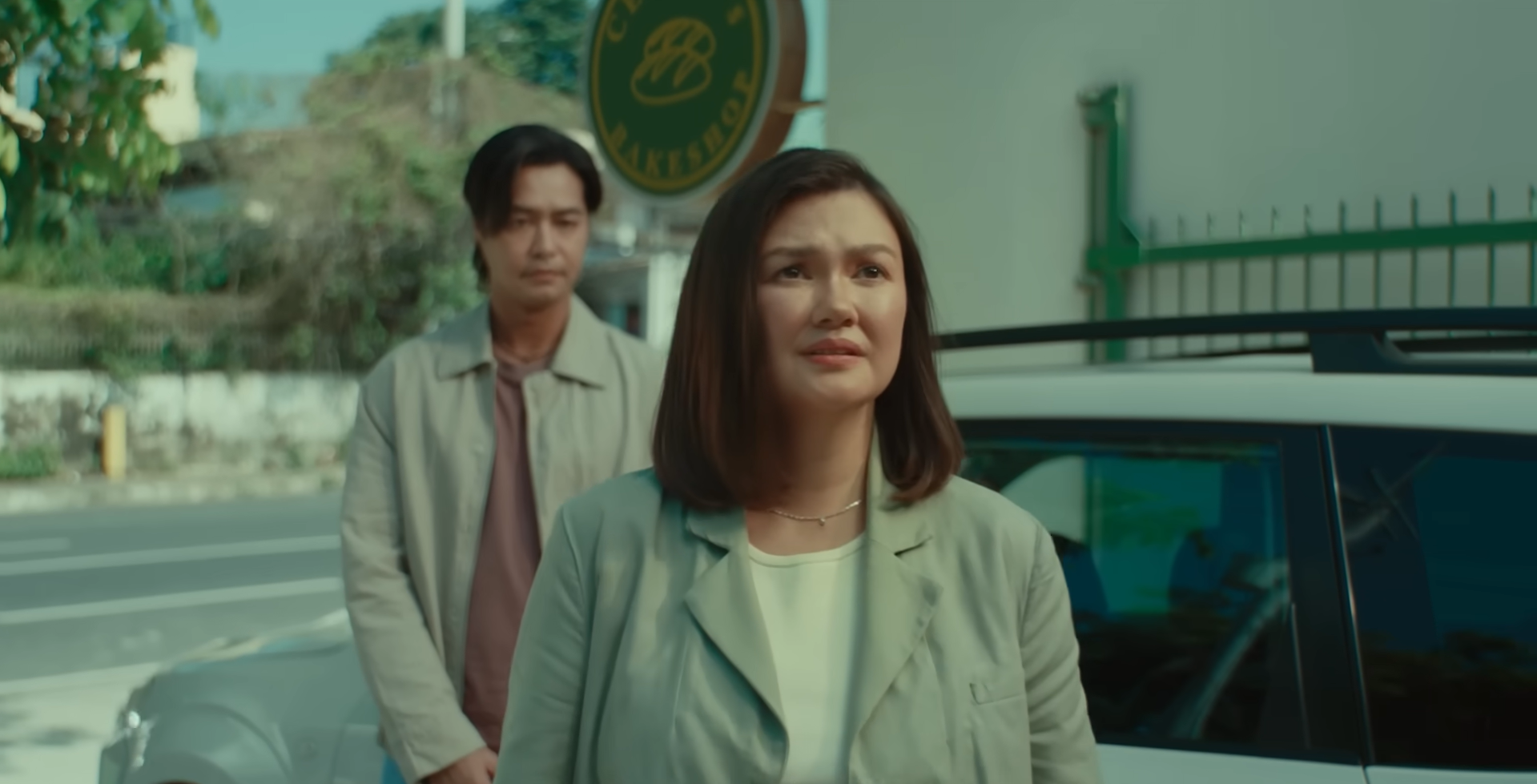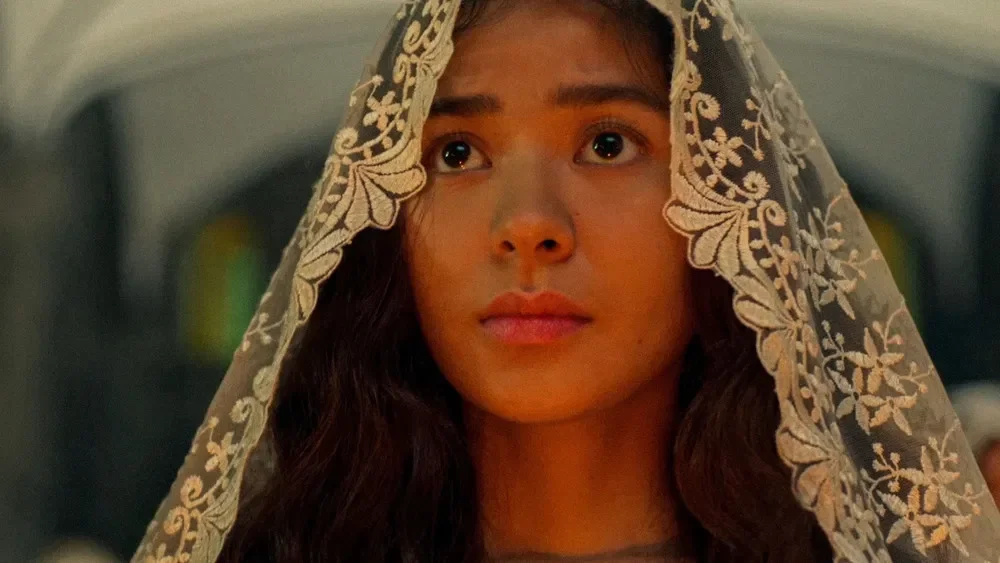‘Leonor Will Never Die’ REVIEW: A charming, if not eccentric, celebration of Philippine cinema—with an action grandma
'Leonor Will Never Die' REVIEW: A charming, if not eccentric, celebration of Philippine cinema—with an action grandma
‘Leonor Will Never Die’ is Martika Ramirez Escobar’s feature-length film debut.
There are very few films that make me want to dance and cheer after it ends. To be swept away by a film’s sheer joy and exuberance is such a rarity in a cynical and frigid climate where dramatic conventions reign supreme and saccharine meringues have a “bad taste.”
Fortunately, Leonor Will Never Die wears its playful sweetness as a badge. It glistens with a lustrous sheen tinged by the colorful past of Filipino action films and pays homage to the emancipative wonders of storytelling.
Director Martika Ramirez Escobar’s feature-length debut is about a retired filmmaker, Leonor Reyes (Sheila Francisco), who gets transported inside a classic action film she wrote during the 80s. Inside the film within a film, she rewrites and revises until she is satisfied. Of course, hilarity, chaos, and meta-narratives ensue.
What’s immediately striking about this film is its heart. Francisco, best known for her local theater acting, anchors this film, serving as its heart and soul. It’s easy to empathize with her decrepit and pitiful state since Francisco knows all too well how to tug at heartstrings. Her predicament surmises a reality that film industry workers of the past continue to confront.
Sheila Francisco stars as Leonor Reyes, a retired action filmmaker.
In the Philippines, unless you get into politics, having a legacy of action films to your name is not even enough to pay the bills. Money doesn’t always flow in the industry; budgets are always constrained, contractual work is more common, and worker benefits are thin. Despite all of that, old film workers and community captains who were once action stars still show up with horsehide leather and lit cigarettes. It’s a means to cling to the past, an era when they were all beloved and could satiate the escapist demands of the masses.
Delirious action scenes and excessive melodrama were practically the life and blood of the film industry in the 80s. In fact, the country has historically found it difficult to bifurcate between the action star images of candidates and their actual political capabilities. We once elected an action star as the President, quickly threw him out, almost elected another one, and then we kept falling for them over and over again.
Last December, the Metro Manila Film Festival’s Best Picture Winner ‘Big Night’ also satirized this culture of electing bovarist action stars into top positions using the ever-so charismatic John Arcilla. Essentially, the Philippines is obsessed with savior figures, unceasingly holding out hope that what happens in fiction (beating up the evil ‘forces’) can also happen in real life.
This culture of jumping between fiction and reality is why it makes sense that Leonor returns to her unfinished script. It resembles her desire to revise her fictional story and become the savior that her family sorely needed in real life. Her late son, Ronwaldo (a translucent Anthony Falcon), bears the same name as her main action lead (charmingly played by a scruffy Rocky Salumbides), both becoming emotional focal points for a grieving Leonor.
In a way, this tension between fiction and reality parallels Director Martika’s 8-year long journey full of constant alterations and upheavals to ensure that she gets her film right. At its core, it’s a universal story about the vicissitudes of storytelling and the exhausting internal dialogue between a writer and their persnickety work.
The poster for ‘Leonor Will Never Die.’
Leonor Will Never Die isn’t so cut and dry as its film within a film narrative might suggest. There’s a see-through ghost (Uncle Boonmee reference?), a bunch of hypnotic snails, an absurd pregnancy gag, and out-of-the-blue dance numbers. Not to mention its meta-narrative that hits you like a sledgehammer eager to rupture the veil between fiction and non-fiction.
These characters and events serve as pieces to an abstract and undefinable puzzle that enlivens Leonor’s world away from boring mundanity. There is nothing more over the top and jolting than an 80s Filipino action film. Its presence is felt in every corner, from the seemingly mute child obsessed with television to the leather-clad ghost seen in the present day.
Leonor’s action film titled ‘Ang Pagbabalik ng Kwago’ (The Return of the Owl) is filled to the brim with classic Filipino action hallmarks. There’s the horrible dubbing, the boxed aspect ratio, the disjointed editing, the lack of continuity, the sterile sex scenes, the showgirl in need of saving from the gangs, and of course, the impervious to bullets and morally upright action leading man.
Fernando Poe Jr. (FPJ), Phillip Salvador, Joseph Estrada, Rudy Fernandez, and Eddie Garcia are all not-so-subtle archetypes of Ronwaldo. While Amy Austria, Elizabeth Oropesa, Jean Saburit, Alona Alegre, and Tetchie Agbayani are unforgettable inspirations for Isabella’s (Rea Molina) female burlesque dancer. The party is also not complete without the ‘kontrabida,’ or the villain, which almost always bore a resemblance to the authoritarian leader of the time.
To a foreigner, these might seem like our version of B-movies, but in actuality, they were most certainly our mainstream offerings. They have not only shaped our cultural world but our social, and without a doubt, political environment. When you ask who’s “Da King?” FPJ is the automatic answer. Blurt out “Asiong Salonga” and Joseph Estrada comes to the Filipino mind.
Leonor engages in a similar kind of mythmaking, not for political or economic gain, but, rather, to redeem herself and finally move on from the past. It’s a journey that her initially frustrated son Rudie (played affably by Bong Cabrera) also realizes as he embraces the fiction with his mother to find closure in reality.
Rocky Salumbides stars as Ronwaldo, the action movie leading man of the 80s.
Martika knows how intense the parasocial relationship between Filipinos and action films can be and utilizes it to say something about the beauty of filmmaking. Besides, how can something so “schlocky,” “cringe-inducing,” and “inferior” bring so many people together to cheer on the fictional action movie star (plus even vote for them in real life)?
In a scene between Leonor and Ronwaldo, she tells her fictional character: “I know everything you know.” On the surface, it’s a writer merely revealing her omniscience to a sentient character, but on a deeper level, it’s a mother comforting the shadow of her late son, recognizing his fears, doubts, and anxieties. In another scene, she comforts Ronwaldo’s mother, a variant of herself, and reflexively soothes her own flaws and issues.
These connections tether the fiction and the real, and their synthesis gives catharsis to its writer, characters, and audience. Not a good emotional moment? Rewind and try another take. Not a satisfying enough ending? Revise and determine what makes more sense. Martika knows how grueling the writing process can be, so she highlights it and becomes candid about it.
It takes a lot of courage to show this amount of vulnerability, to admit not knowing how to best stick the landing, to stand naked out in the rain without an umbrella, and to concede to the incertitude of one’s artistic mind — and honestly, it works.
Martika is as curious about life as she is about filmmaking, and it's this curiosity that holds the film so well. There is a palpable enjoyment felt in the edit, it is neither mocking nor derisive; it is pure, raw, and unashamedly festive. It’s nice to have a film that is unafraid to celebrate the Filipino action of the past with all its blemishes and imperfections.
Set photos from ‘Leonor Will Never Die.’
Lawrence Ang edits the film with a frenetic pace, its tension heightened as he cuts between Leonor’s scriptwriting and the film being formed right before our eyes. Alyana Cabral and Pan De Coco’s music is mellifluous and honeyed with a multitude of flavors. The ending song is already ingrained in my head (and desperately needs to be released on Spotify).
Eero Francisco’s domestic and industrial production design complements Carlos Mauricio’s 80s inspired cinematography. Conversations in front of a rectangular mirror or a riverside bridge easily look like they came from Lino Brocka’s Insiang or Jaguar. All these factors combine to create a glossy texture that is both nostalgic and easy on the eyes.
Ultimately, Leonor Will Never Die soars when it is having fun with itself. It’s not to say that it’s short with sociopolitical timbre and veiled commentaries on national issues like all great action films. It doesn’t lose sight of the maxims it wants to say about the magic of storytelling and how it can be all the things it wishes to be, all at once.
It’s an ode to the immortality of characters etched onto the silver screen. By blurring the line between fiction and reality, the film becomes a monument to the memories of the past. Leonor breathes life to the ones we’ve lost and deigned to appreciate. Leonor will never die — perhaps, the same can be said for Philippine cinema.
Leonor Will Never Die will have its second online screening at the 2022 Sundance Film Festival on January 23, 8:00 AM MST. To get tickets, visit the Sundance website.













